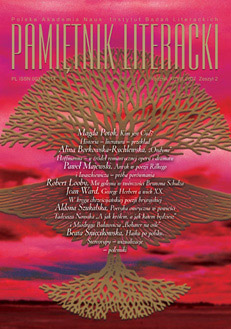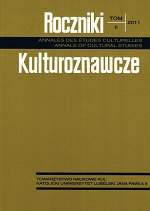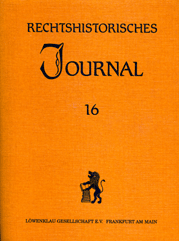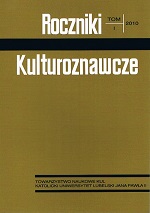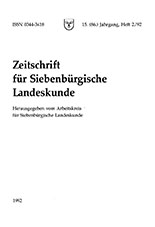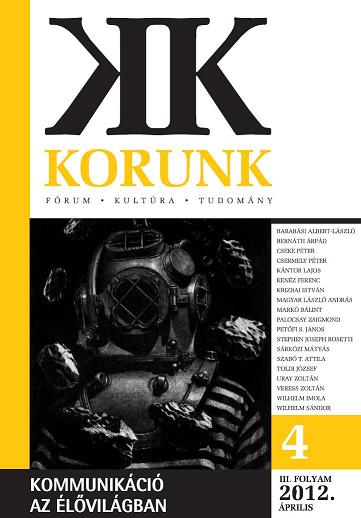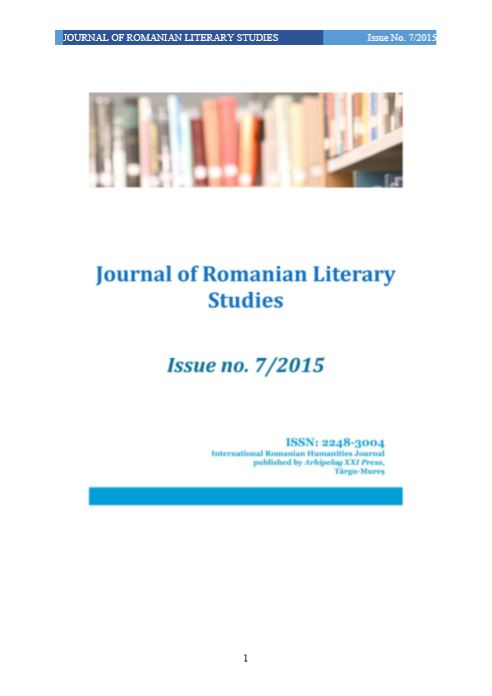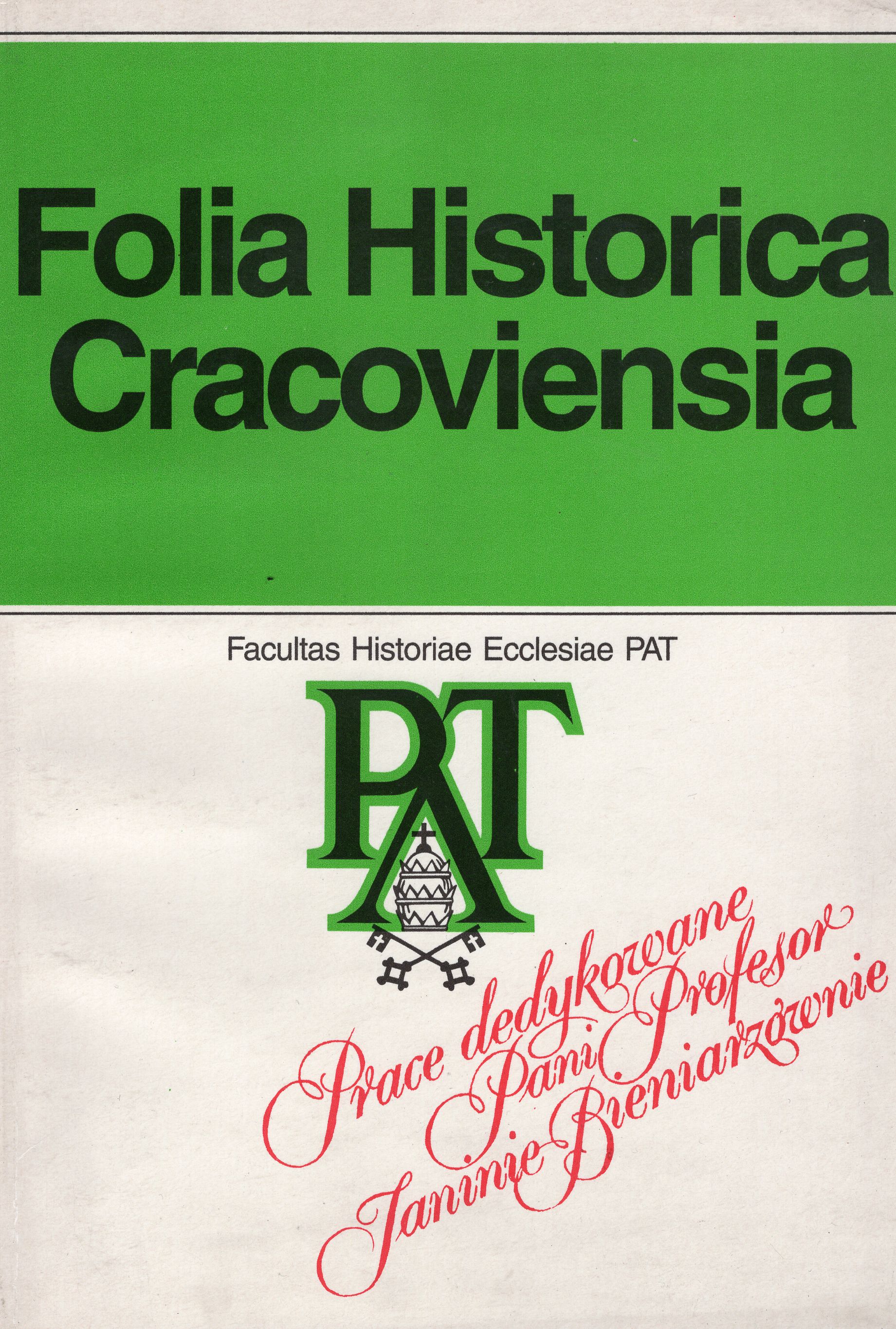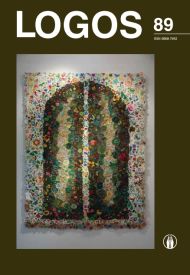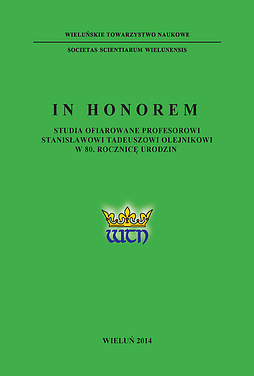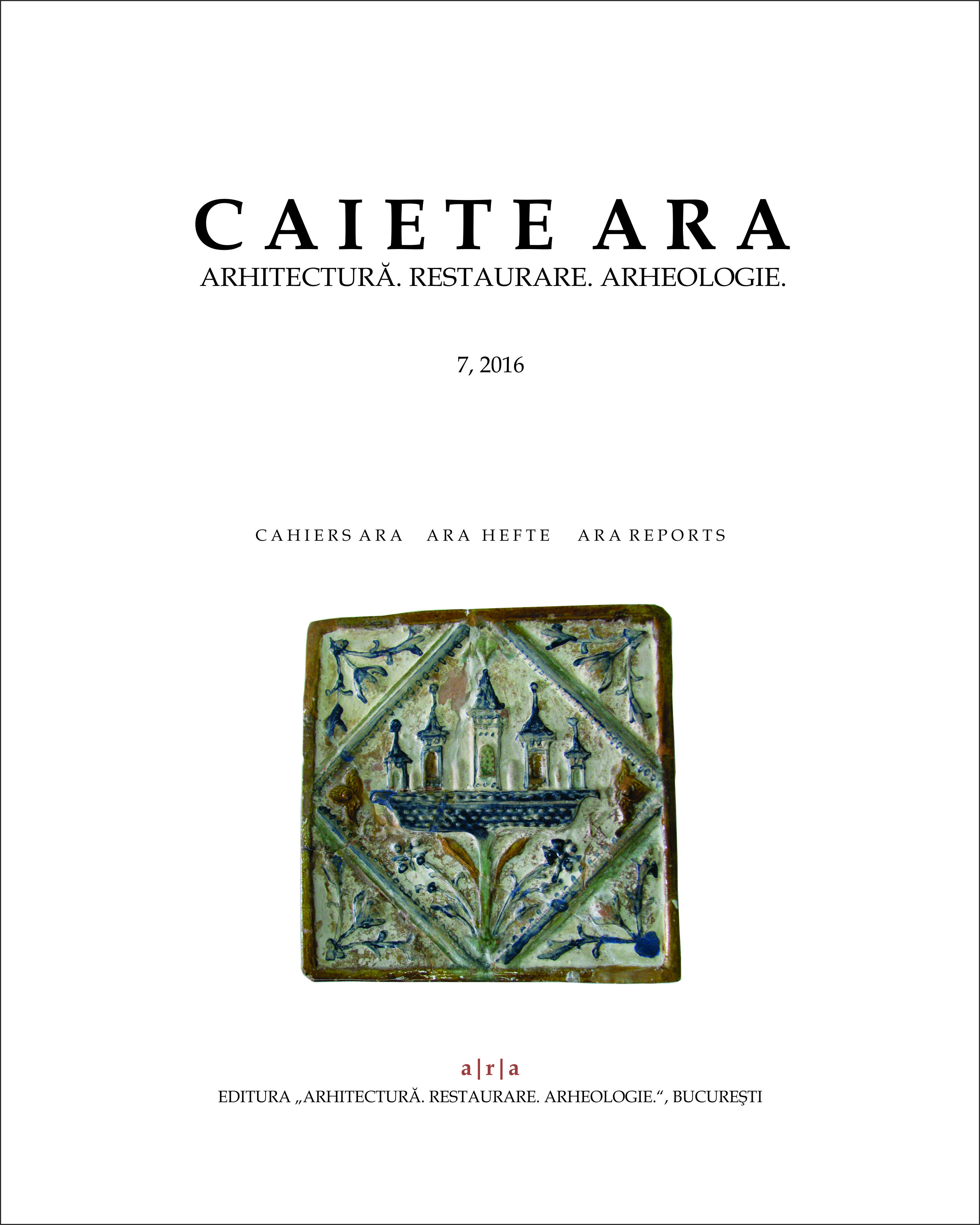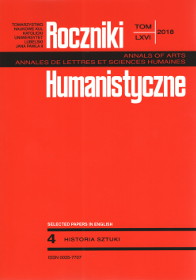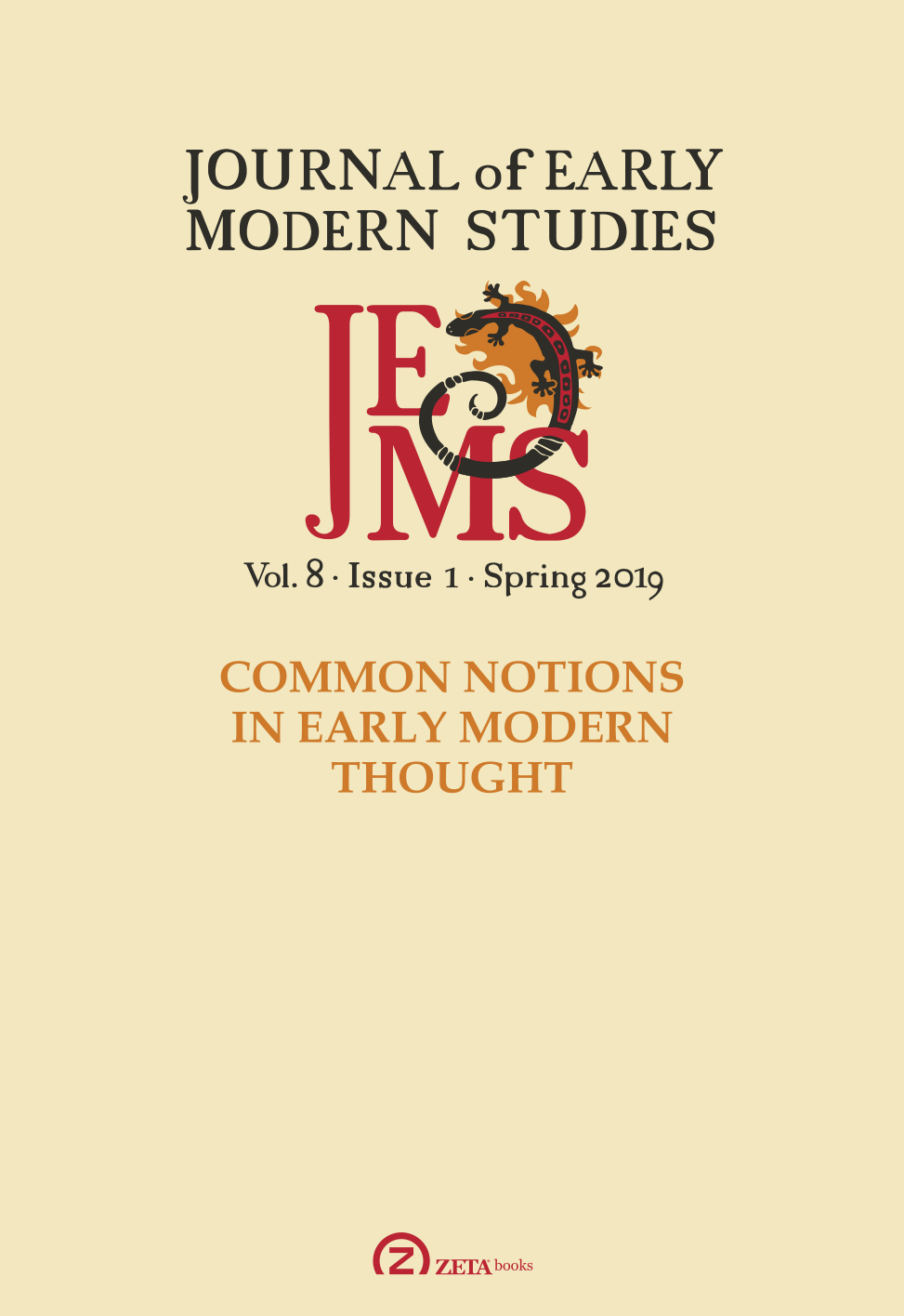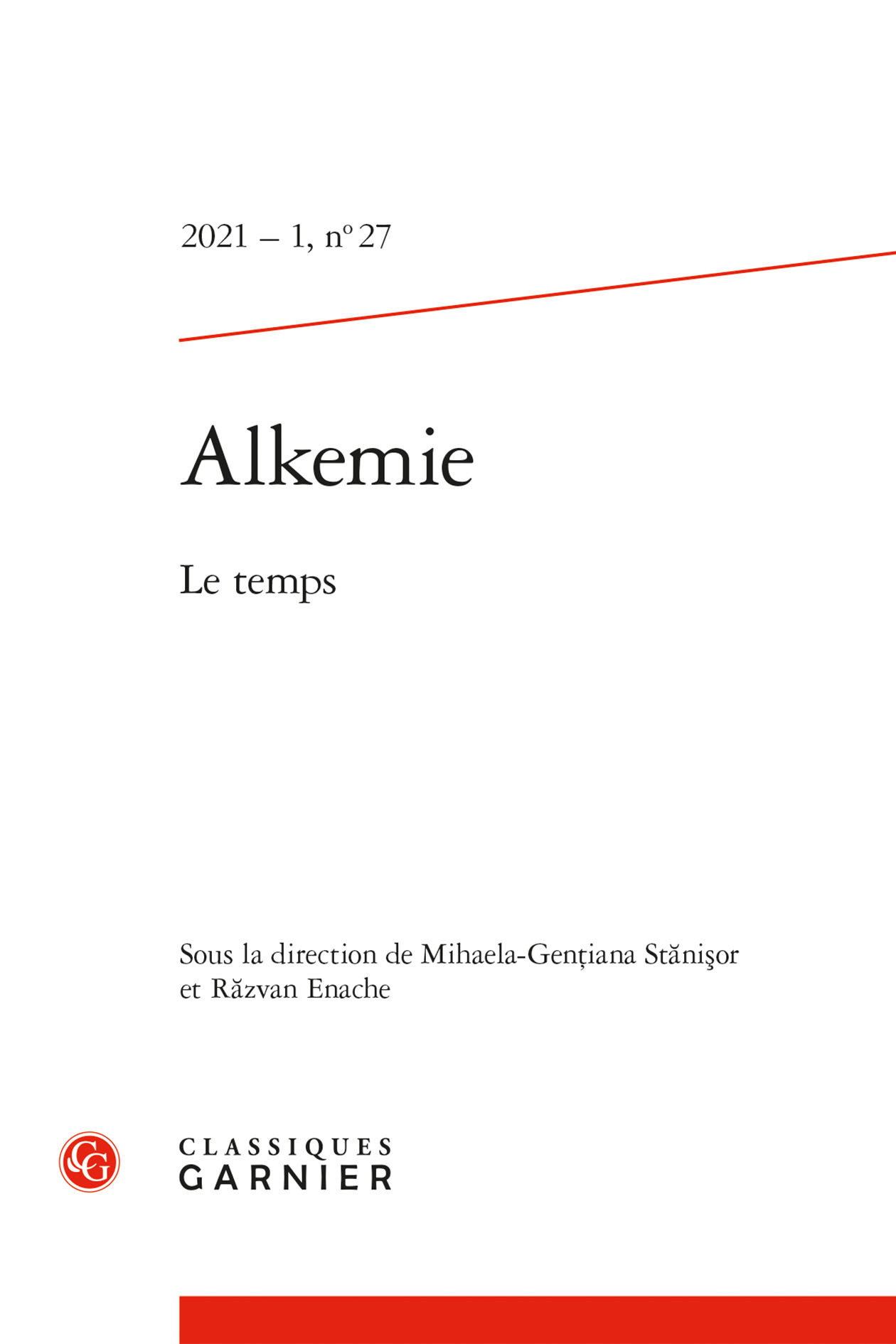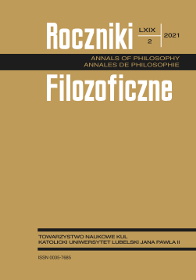Ficino And Savonarola Two Faces of the Florence Renaissance
Author(s): Beata Gawrońska-Oramus / Language(s): English
/ Issue: 4SP/2018
Keywords: Ficino; Savonarola; Pico della Mirandola; neo-Platonism; art; religion; Renaissance; republic; piagnoni; Apologia contra Savonarolam
The Polish version of the article was published in “Roczniki Humanistyczne,” vol. 61 (2013), issue 4.Analysis of the mutual relations between the main intellectual and spiritual authority of the Plato Academy—Marsilio Ficino on the one hand, and Girolamo Savonarola, whose activity was a reaction to the secularization of de Medici times on the other, and a thorough study of their argument that turned into a ruthless struggle, are possible on the basis of selected sources and studies of the subject. The most significant are the following: Savonarola, Prediche e scritti; Guida Spirituale—Vita Christiana; Apologetico: indole e natura dell'arte poetica; De contempt mundi as well as Ficino’s letters and Apologia contra Savonarolam; and also Giovanni Pica della Mirandoli’s De hominis dignitate.The two adversaries’ mutual relations were both surprisingly similar and contradictory. They both came from families of court doctors, which gave them access to broad knowledge of man’s nature that was available to doctors at those times and let them grow up in the circles of sophisticated Renaissance elites. Ficino lived in de Medicis' residences in Florence, and Savonarola in the palace belonging to d’Este family in Ferrara. Ficino eagerly used the benefits of such a situation, whereas Savonarola became an implacable enemy of the oligarchy that limited the citizens’ freedom they had at that time, and a determined supporter of the republic, to whose revival in Florence he contributed a lot. This situated them in opposing political camps. They were similarly educated and had broad intellectual horizons. They left impressive works of literature concerned with the domain of spirituality, philosophy, religion, literature and arts, and their texts contain fewer contradictions than it could be supposed.Being priests, they aimed at defending the Christian religion. Ficino wanted to reconcile the religious doctrine with the world of ancient philosophy and in order to do this he did a formidable work to make a translation of Plato’s works. He wanted to fish souls in the intellectual net of Plato’s philosophy and to convert them. And it is here that they differed from each other. Savonarola’s attitude towards the antiquity was hostile; he struggled for the purity of the Christian doctrine and for the simplicity of its followers’ lives. He called upon people to repent and convert. He first of all noticed an urgent need to deeply reform the Church, which led him to an immediate conflict with Pope Alexander VI Borgia.In accordance with the spirit of the era, he was interested in astrology and prepared accurate horoscopes. Savonarola rejected astrology, and he believed that God, like in the past, sends prophets to the believers. His sermons, which had an immense impact on the listeners, were based on prophetic visions, especially ones concerning the future of Florence, Italy and the Church. His moral authority and his predictions that came true, were one of the reasons why his influence increased so much that after the fall of the House of Medici he could be considered an informal head of the Republic of Florence. It was then that he carried out the strict reforms, whose part were the famous “Bonfires of the Vanities.” Ficino only seemingly passively observed the preacher’s work. Nevertheless, over the years a conflict arose between the two great personalities. It had the character of political struggle. It was accompanied by a rivalry for intellectual and spiritual influence, as well as by a deepening mutual hostility. Ficino expressed it in Apologia contra Savonarolam written soon after Savonarola’s tragic death; the monk was executed according to Alexander VI Borgia’s judgment. The sensible neo-Platonist did not hesitate to thank the Pope for liberating Florence from Savonarola’s influence and he called his opponent a demon and the antichrist deceiving the believers.How deep must the conflict have been since it led Ficino to formulating his thoughts in this way, and how must it have divided Florence's community? The dispute between the leading moralizers of those times must have caused anxiety in their contemporaries. Both the antagonists died within a year, one after the other, and their ideas had impact even long after their deaths, finding their reflection in the next century’s thought and arts.
More...

